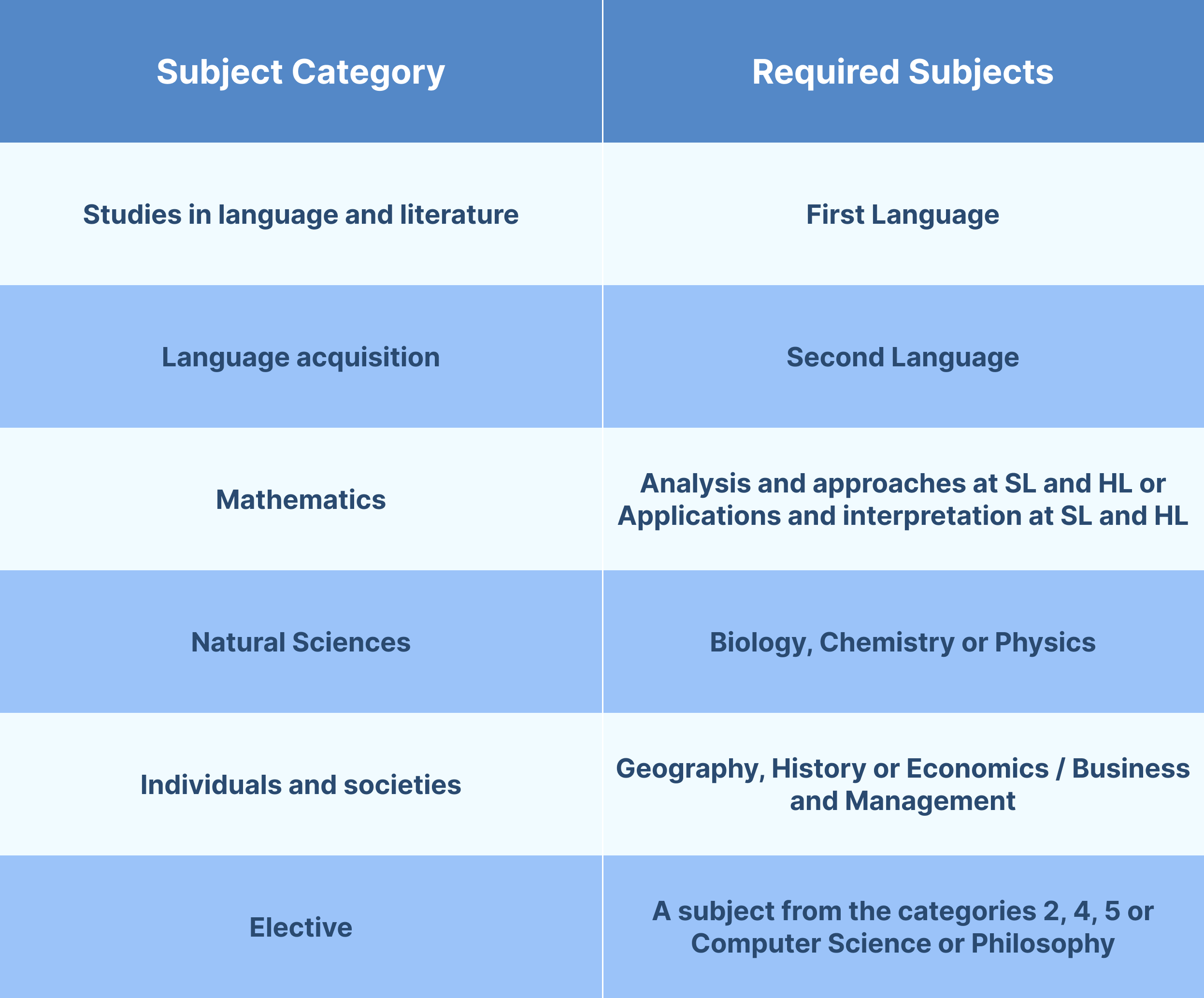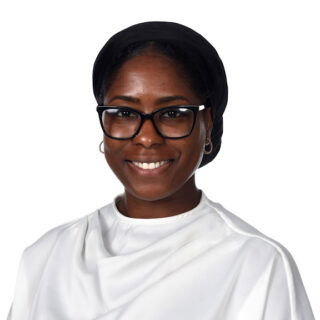Do Swiss Universities Accept the IB Diploma?

Great news for IB graduates considering Switzerland for their university studies – IB Diplomas are accepted at Swiss universities. However, to enter one of these higher education institutions, you’ll need more than a passing score. As TutorsPlus is based in Geneva we have done the deep dive into everything you need to know about applying.
In fact, you need to take into account the requirements before you make your final IB choices, as some courses and universities require specific IBDP subject combinations and levels.
Each Swiss higher educational institution has its own specific requirements for IB courses. Specifically, there are subjects they recognise, including a certain number at HL, and a minimum overall score. These and some other factors make the admissions process quite challenging, although the Price-Quality ratio of Swiss education is incredibly attractive so it is worth investigating.
Why is the IB Diploma Globally Recognised?
If you’re a holder of the IB diploma, you’re in luck. Higher education institutions worldwide, and those in Switzerland as well, will accept it as a university entrance qualification. That’s because they appreciate its holistic approach and the depth of the material. Besides, the Diploma Programme helps develop international-mindedness, which you’ll need to study or work abroad.
Another factor that helps succeed in higher education is IBDP’s Core component. Comprising of Theory of Knowledge (TOK), Creativity, Activity, Service (CAS), and the Extended Essay (EE), it contributes to developing valuable skills for university life and future careers. In particular, it enhances critical thinking, time management, and independent study skills. Compared to students with other high school qualifications, IB graduates feel more prepared for university-level work.
Along with that, IB diplomas boast a unique balance between specialisation and a broad range of subjects. Specifically, students have a chance to choose which subjects they want to learn in more detail at the High Level (usually those, they connect their future careers with) and which they’d like to know for a general outlook at the Standard Level. Thanks to this flexibility, students can adjust their education to their interests and strengths.
One more reason why universities highly value IBDP education is the lower dropout rate after the first year compared to other qualifications. This fact suggests that the IBDP not only prepares students for university entry but also supports their success once they are there.
Acceptance of the IB Diplomas at Swiss Universities
Many educational sector professionals recognise the IB diploma as the gold standard for international qualifications. Still, many applicants worry that domestic qualifications (in the case of Switzerland, it is Maturité Fédérale/Eidgenössische Matura, or simply Matura, the federal graduation diploma), might hold an advantage over the IBDP in admissions decisions. After all, it is natural that a country favours its own educational system.
However, the idea that a Swiss high school education is better, or that IB graduates have worse chances of admission is false, they are just different. Over the past decade, IBDP has cemented its status as a valid and sought-after qualification. As a result, it holds parity with other qualifications in most countries, and Switzerland is no exception.
Having said that, Swiss universities have specific requirements regarding the courses taken at Higher and Standard levels as well as the minimum overall score needed for admission. These requirements ensure a level playing field for applicants from diverse educational backgrounds.
Relevant IB Courses
As we have already said, IB diplomas at Swiss universities get recognition only if they feature specific IBDP subject combinations. This means that you need to plan your IB course selection with the Swiss requirements in mind.
When you enrol, Swiss universities make sure that you have completed 6 subjects, each from its own category. Please keep in mind that these categories don’t match IBDP subject categories.
For example, the Diploma Programme offers 6 subjects as part of their Science group including Design Technology, Computer Science, Environmental systems and societies, etc. However, Swiss Universities recognise only Natural Sciences. As a result, unless you studied Biology, Chemistry or Physics, you don’t meet the entry criteria.
When it comes to Computer Science, Swiss Universities accept it but only as the 6th subject, i.e. along with Computer Science you still need to learn one of the three Natural Sciences.

Overall, out of the multitude of subjects the IB Diploma Programme has to offer, Swiss Universities recognise only the following:
- Languages (including studies in your native language as well as Language acquisition);
- Economics /business management;
- Geography;
- History;
- Philosophy;
- Biology;
- Chemistry;
- Physics;
- Mathematics (both AA and IA);
- Computer science.
General Acceptance Policy for IB Diplomas at Swiss Universities
When it comes to International Baccalaureate in Switzerland, it is a valid qualification for admission to Bachelor’s programmes. Of course, if you meet specific requirements.
Most Swiss universities set a minimum score of 32 marks out of the possible 42 (excluding bonus points for the Core component) for the IB Diploma. However, technical institutions (ETH Zurich and EPFL) set the bar higher – at 38 marks.
Please note that while Swiss universities don’t factor in marks for the Core component, they do require that you have completed the full IB Diploma programme.
You have fewer than 38 marks but still wish to enter a technical university? EPFL offers a special pathway for those who score between 32 and 37 marks. The Cours de mathématiques spéciales (CMS) is a preparatory year focused on mathematics. CMS completion will allow you to progress to any of EPFL’s Bachelor’s programme.
Application deadlines often occur before students know the results of their IB exams. That’s why universities make admission decisions based on predicted grades or past academic performance. Besides, some universities (such as the University of St. Gallen) have an election procedure since they have a limited number of places for foreign applicants.
Language Requirements
Swiss universities typically offer courses in the country’s official languages: German, French, and Italian. The specific language depends on the university and the region in which it is located.
French-Speaking Universities
French is the primary language of instruction at universities in western Switzerland, such as the EPFL (École Polytechnique Fédérale de Lausanne).
Most students applying to French-speaking universities in Switzerland are native French speakers. However, if French is not your mother tongue, you need to prove a certain level of French proficiency.
Non-native students should typically have language proficiency at level B2 of CEFR. At the same time, some universities recommend C1 for their selected programmes. Many IB Diploma graduates fulfil this requirement by taking the DELF (Diplôme d’Etudes en Langue Française) exam in their final year of high school. Additionally, universities may offer language support programmes for students who wish to improve their French before or during their studies.
German Speaking Universities
German is the dominant language at universities in central and eastern Switzerland, such as ETH Zurich (Swiss Federal Institute of Technology).
Similar to French-speaking institutions, non-native students must demonstrate proficiency at the B2-C1 levels. Both TestDaF (Test Deutsch als Fremdsprache) and DSH (Deutsche Sprachprüfung für den Hochschulzugang) will be proof of proficiency. Language support programmes are also available at most German-speaking universities.
English-Taught Programmes
A growing number of universities offer Master’s programmes, and even some Bachelor’s programmes, entirely in English. This can be a great option for international students, who are comfortable studying in this language. At the same time, even for English-taught courses, they might recommend basic proficiency in German or French.
In fact, private universities, like Webster, offer courses taught exclusively in English and in the US liberal arts approach, therefore by-passing the dual language requirement altogether.
Make sure to check the specific language requirements, as they tend to vary even within the same university depending on the programme and level of study.
Book free trial with our certified IB teachers today
100 % of tutors are certified teachers and examiners
Admission Criteria and Procedures
So, you have firmly decided to continue your academic path in Switzerland and you even meet the general acceptance policy requirements. Ready to apply? Then you need to know the admissions process for the holders of IB Diplomas at Swiss universities. Here are its key steps:

Step 1: Choose Your Course
The first step is, naturally, to choose your desired university and programme. This resource can help you explore your options. You need to consider the type of university (public or private), the language of instruction (English, French, German, or Italian), and, of course, available fields of study.
Speaking of that, Switzerland boasts a strong reputation for technologically advanced programmes such as IT, computer science, and engineering. Additionally, it is a leader in finance, accounting, banking, and business administration.
Step 2: Understand the Requirements
Unlike some countries with centralised admissions, Switzerland gives each university autonomy in setting its admissions criteria. Therefore, you should check the specific requirements for your chosen HIE and programme– a university’s website, admissions office, or student support services are the best resources for the latest information.
Step 3: Prepare Your Documentation
As a multilingual nation, Switzerland might require translations of your documents (high school diploma, transcripts, etc.) into French, Italian, or German, depending on the university’s location.
Here’s a general checklist of application documents:
- Completed and signed application form;
- Copy of a valid passport;
- Two passport-sized photographs;
- High school diploma (IB Diploma in your case);
- Language proficiency certificates in English, Italian, French, or German (depending on programme requirements);
- Curriculum Vitae;
- Motivation letter explaining why you want to study in Switzerland;
- Proof of application fee payment (typically, between 100-400 CHF).
If you don’t have a language certificate, some universities offer placement tests to assess your proficiency.
Step 4: Submitting Your Application
Once you have all the required documents, you need to go to the university’s website and complete the online application form. Remember to pay the application fee and upload all supporting documents before the deadline. Generally, applications open in the spring semester for studies beginning the following academic year.
Regular Applications:
Fall semester: Early December – End of April;
Spring semester: Early May – End of November;
Visa Application Deadlines:
Fall semester: Early December – End of February
Spring semester: Early May – End of September
Step 5: Selection Procedure (Optional)
Since universities cannot accept all foreign applicants, even though they meet the formal requirements, some of them have selection procedures. If you’re considering the University of St. Gallen, for example, this procedure has two steps:
- Online aptitude test;
- Video interview.
Equivalency and Conversion of IB Scores to the Swiss Grading System
Swiss universities welcome applications from students around the world. However, the majority of applicants will be Swiss graduates with grades based on the Swiss Matura system.
As you probably know, the IB Diploma awards grades on a 7-point scale (1 being the lowest and 7 the highest). The Swiss Matura, on the other hand, uses a 6-point scale, where 6 is the highest grade and 1 is the lowest.
To ensure a fair admissions process, universities need to compare these different grading systems. For this purpose, they use conversion tables, which compare IB Diploma grades to their corresponding equivalents in the Swiss Matura system.
Examples of IB Score Requirements for Different Programmes and Universities
As a rule, Swiss Universities require a minimum of 32 points out of 42 for admission (exam scores minus the Core component). At the same time, at least 3 subjects must be completed at HL – this usually includes Mathematics, one of the three Natural Science, and for some universities, Language A.
Having said that, technical universities – EPFL and ETHZ – have even higher admission criteria. An applicant must have a minimum of 38 points (with an exclusion of the Core component) to have a chance of admission. Along with this, EPFL requires grades in Physics and Mathematics not lower than 6.
University-Specific Policies
Now let’s take a look at requirements for those who hold IB diplomas at some of the most popular Swiss universities.
ETH Zurich and University of Zurich
ETH Zurich one of Switzerland’s premier institutions, has specific admission requirements for IB students. You can become its student without entrance exams if you meet these criteria:
- A minimum score of 38 out of 42 marks (excluding the Core component);
- At Higher Level: Mathematics, one Science subject (Physics, Chemistry, or Biology) and one Language A;
- At Standard Level: three additional subjects from the following: Physics, Chemistry, Biology, Geography, History, Economics, Business Management, one further Language A (not the same as your HL Language A), or Computer Science.
If you cannot meet these requirements, you may still be eligible for admission through the Reduced Entrance Examination covering four subjects.
While some courses might be offered in English or French, the primary language at ETH Zurich is German. Therefore, you’ll need to demonstrate proficiency in German through a recognised certificate.
The University of Zurich has its own set of entry requirements for IB Diploma holders:
- A minimum of 32 marks out of 42 (excluding Core component);
- At least three of your IB subjects from 6 categories must be at the Higher Level. One of these subjects is either Mathematics or another natural science subject.
German is the main language at the University of Zurich, although some modules are taught in English or other languages. Unlike ETH, the University of Zurich requires a higher level of German proficiency – at least C1 on the CEFR scale.
University of Geneva and University of Lausanne
Both the University of Geneva and the University of Lausanne recognise the IB Diploma for admission to their Bachelor’s programmes. Their requirements specify:
- A minimum of 32 points out of 42 in your IB assessment;
- The subjects you studied must cover all six subject categories, with at least 3 subjects at HL;
- One of these HL subjects must be either Mathematics or another natural science subject (e.g., Physics, Chemistry, Biology).
While these are basic requirements, some programmes at both universities may have additional requirements. You can learn more at the official websites of the University of Geneva and the University of Lausanne.
Universities of Applied Sciences and Their Acceptance Policies
The Swiss higher education system includes Universities of Applied Sciences (Fachhochschulen) alongside traditional universities. These Fachhochschulen offer a more practical, career-oriented education, focusing on applied science and technology. You can choose among eight public UAS and two private ones.
Can you get enrolled with IB diplomas at Swiss universities of this type? Yes, as long as you meet their admission criteria. The general criteria are the following:
- The minimum score falls somewhere between 28 and 34 marks, excluding Core marks;
- There might be specific subject requirements depending on the programme. For instance, an Engineering programme might require Math and Physics at a Higher Level;
- Similar to universities, UAS require proof of language proficiency in the programme’s language of instruction.
Conclusion
Choosing the IB Diploma Programme is likely one of the best decisions in your academic journey. It opens doors to prestigious universities worldwide, and Switzerland, one of the leaders in higher education, recognises these diplomas too. However, to secure your place at a Swiss university, you need to meet its high standards.
TutorsPlus can be a reliable partner in achieving this goal.
First of all, our expert IB tutors can provide support throughout your two-year journey as an IB student. Getting the best grades in the required IB subject combinations is much easier with our assistance.
Second, our university applications service helps international students gain admission to the universities of their dreams. This is what you can count on:
- Personalised assistance in selecting the best universities and programmes for your academic goals;
- Support in preparing application materials, including written work, CV, and compelling personal statement;
- Assistance with gathering and translating transcripts and certificates;
- Mentorship throughout your application journey.
Why not book a Free 30 minute consultation with Dr Labriola, our Director of University Applications? He can double check the subject and level combinations that you are considering for entrance into Swiss universities. Get in touch at and we can book a session for you.
Are you ready to make the most serious step towards higher education in Switzerland? Then make sure to contact us at 022 731 8148 or to connect with our tutors and application advisers.
By Sara Lloyd
Sara has been an education consultant for TutorsPlus for 15 years, and is an expert on international IB education. She is also a parent of two lively children.















